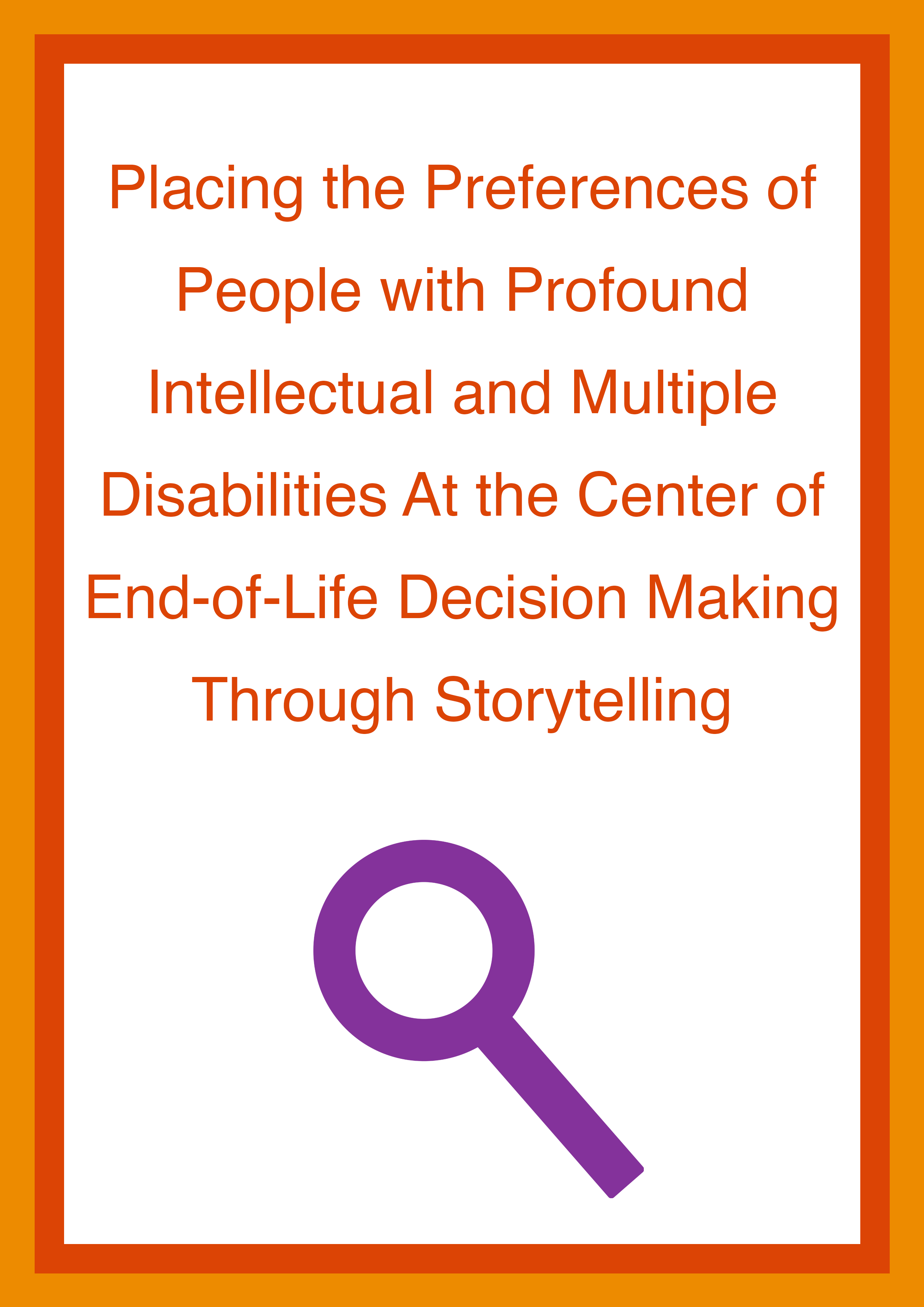Published: 2019
With a focus on the use of narrative approaches, this article is a commentary on decision-making support for people with profound intellectual and multiple disability at the end-of-life. Due to improved health care, people are living longer lives than ever before. Therefore, they are increasingly facing decisions relating to end-of-life care and planning. Despite the increased attention that has been given to end-of-life planning, opportunities to have preferences responded to at the end-of-life are more likely afforded to people considered to have cognitive and decision-making capacity.
Organisation: Research and Practice for Persons with Severe Disabilities - Deakin University
